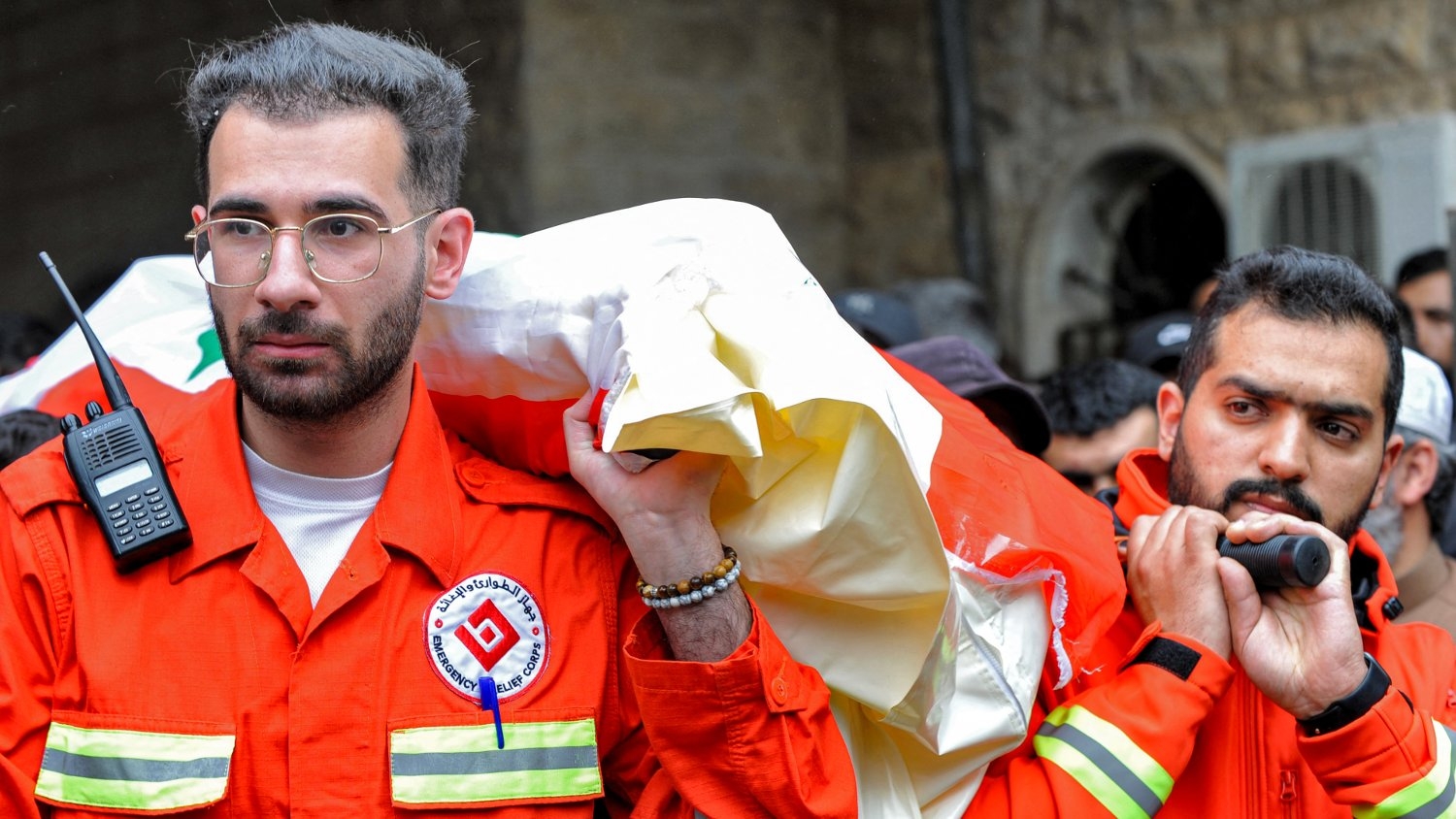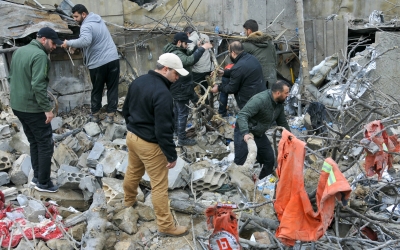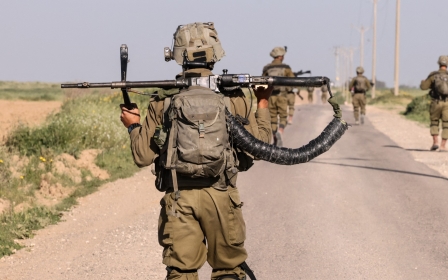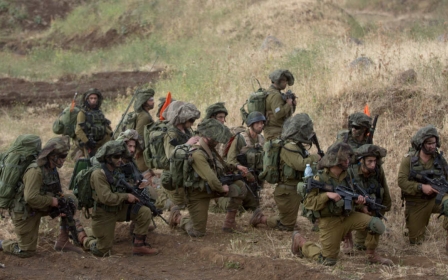US munition used in Israeli air strike that killed health workers in Lebanon, says report

The Israeli military killed seven healthcare workers in an air strike in south Lebanon deploying a US-made bomb, according to an investigation by The Guardian.
According to the leading rights group Human Rights Watch, the attack was described as a violation of international law - a description of this kind could invoke US laws that would put a halt to American arms shipments to Israel.
The attack occurred on 27 March and targeted an ambulance centre belonging to the Lebanese Succor Association in the town of al-Habariyeh. The air strike killed seven volunteer paramedics, all between the ages of 18 and 25.
According to an analysis by The Guardian, the shrapnel recovered by first responders to the attack revealed that the bombs used in the attack were the 500lb Israeli MPR bomb and a joint direction attack munition (Jdam), a US-manufactured missile guidance kit.
The newspaper had the pictures of the weaponry verified by Human Rights Watch and an independent arms expert.
New MEE newsletter: Jerusalem Dispatch
Sign up to get the latest insights and analysis on Israel-Palestine, alongside Turkey Unpacked and other MEE newsletters
Jdams are manufactured by the American company Boeing. The guidance kits are attached to bombs, which turn them into guided missiles.
The revelation of this use of weaponry on healthcare workers comes ahead of an 8 May deadline in which the Biden administration must deliver a report on whether Washington finds Israel's use of American weapons in violation of US or international law.
Israel has already sent a notice to the Biden administration saying it is not violating either set of laws, and now the administration must report to Congress whether it agrees with Israel's assessment.
Middle East Eye reached out to the State Department for comment on this report but did not receive a response by the time of publication.
Since Israel's war on Gaza began last October, the administration of US President Joe Biden responded with full diplomatic support for Israel. The administration also fast-tracked weapons shipments to the country.
Israel's military has so far killed more than 34,000 Palestinians in its war on the Palestinian enclave, the majority of them being women and children, according to the Palestinian health ministry.
It has also been exchanging cross-border fire on the Lebanese movement Hezbollah in southern Lebanon since early on in the war on Gaza.
Israel has killed 16 medical workers in Lebanon since October. Ten of those workers were killed in a single day in March.
Healthcare workers and medical personnel are protected under international law, and it is considered a war crime to target them or medical infrastructure like hospitals or ambulance centres.
Under the Leahy laws, named after former US Senator Patrick Leahy, the US is barred from providing aid or assistance to foreign security forces when there is credible information that those forces have committed "gross violations of human rights".
Several human rights groups have raised concerns throughout Israel's war on Gaza that the US-supplied munitions to the country have left Washington potentially complicit in several allegations of Israeli war crimes in the Gaza Strip.
The Biden administration is also facing a lawsuit in the United States, where Palestinians inside and outside of Gaza have accused the country of complicity in Israel's “genocide of the Palestinian people” by supplying weapons and arms to the country's military.
Middle East Eye delivers independent and unrivalled coverage and analysis of the Middle East, North Africa and beyond. To learn more about republishing this content and the associated fees, please fill out this form. More about MEE can be found here.





